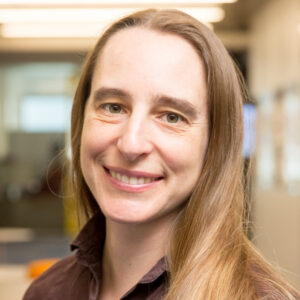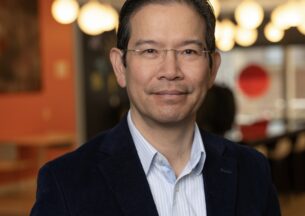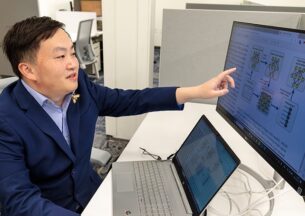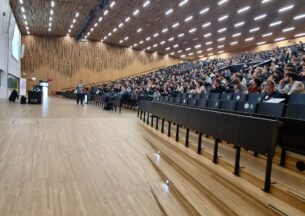Associate Professor Diana Franklin Named ACM Distinguished Member
Diana Franklin, associate professor of computer science and leading researcher on inclusive K-12 computer science education, was named a Distinguished Member by the Association for Computing Machinery (ACM), the world’s largest computing society.
 Franklin was among 67 computer scientists named in the 2022 Distinguished Member class, announced today by the association. Inductees are selected by their peers in computer science for “work that has spurred innovation, enhanced computer science education, and moved the field forward.” Franklin was one of six people cited for “outstanding educational contributions to computing.”
Franklin was among 67 computer scientists named in the 2022 Distinguished Member class, announced today by the association. Inductees are selected by their peers in computer science for “work that has spurred innovation, enhanced computer science education, and moved the field forward.” Franklin was one of six people cited for “outstanding educational contributions to computing.”
As director of the CANON (Computing for ANYoNe) Research Lab, Franklin and her students and collaborators develop and evaluate new approaches in computational thinking education at the elementary and middle school levels with a primary emphasis on equity and inclusion for all underrepresented populations. Projects include curricula and materials built around the Scratch programming language for introducing 4th-6th grade students to coding and computational thinking, Comprehending Code learning strategies (with Cathy Thomas of Texas State University) that draw upon reading comprehension research to make CS accessible to a diverse set of students, and Learning Trajectories for Everyday Computing, which integrates computational thinking and mathematics.
As part of the Enabling Practical-Scale Quantum Computing (EPiQC) project, Franklin has also spearheaded efforts to introduce this new technology to students from kindergarten through college, with an interdisciplinary team of collaborators including Danielle Harlow of the University of California, Santa Barbara. Through comic-style zines, Franklin’s team has developed new resources to introduce a broader audience to the fundamental principles behind quantum computing. The new Quander project, with Harlow and Emily Edwards of the University of Illinois at Urbana-Champaign, creates video games that teach players about quantum concepts including superposition, probabilistic outcomes, entanglement, measurement, and quantum circuits. She also co-created and taught the “Quantum Computing for Everyone” online course sequence for edX, which covers the concepts, math, and programming needed to understand and operate this exciting new class of computers.
Her expertise in this field has led her to co-author an NSF report on the future of quantum information science education, co-lead a multi-institutional program to support quantum education workforce development across the country, and testify to Congress about the need for quantum education.
Franklin is a recipient of the NSF CAREER award, NCWIT Faculty Undergraduate Mentoring Award, four teaching awards, and three best paper awards (ICER ’17, IPDPS ’14, and Computing Frontiers ’13). She also serves on the CRA Board and is the author of “A Practical Guide to Gender Diversity for CS Faculty,” from Morgan Claypool.













